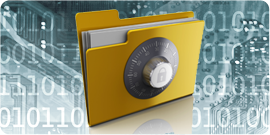Receiving Cash Tips? The IRS Is Watching
Article Highlights:
- Collecting Tips
- Tip Splitting
- Service Charges
- Record Keeping
- Employer Reporting
- Allocated Tips
Anyone who collects tips must include them in their taxable income. This requirement is not limited to waiters and waitresses; it applies to anyone who collects tips, including taxicab drivers, beauticians, porters, concierges, etc.
Tips are amounts freely given by a customer to a person providing a service. They are generally given as cash, but they include tips made on a credit or debit card or as part of a tip-sharing arrangement. Tips can also be in the form of non-traditional gifts such as tickets to events, wine and other items of value. If you receive $20 or more in tips in any month, you should report all of your tips to your employer, with these exceptions:
- Tip-splitting – Tips you give to others under a tip-splitting arrangement are not subject to the reporting requirement by you (the employee initially receiving them). You should report to your employer only the net tips you received.
- Service (cover) charges – These are charges arbitrarily added by the business establishment (employer) — for example, a specific percentage of the bill for parties exceeding X in number — and are excluded from the tip-reporting requirements. If your employer collects service charges from customers, your share of these charges, as determined by your employer, is taxable to you and should already be included as part of your wages.
Keep a running daily log of tip income – Tips are a frequently audited item, and it is a good practice to keep a daily log of your tips. The IRS provides a log in Publication 1244 that includes an Employee’s Daily Record of Tips and a Report to Employer for recording your tip income.
Report tips to your employer – If you receive $20 or more in tips in any month, you should report all of your tips to your employer. Your employer is required to withhold federal income, Social Security, and Medicare taxes. If the tips received are less than $20 in any month, don’t think you are off the hook; although they need not be reported to the employer, these tips are still taxable and must be reported on your tax return, as they are subject to income, Medicare and Social Security taxes.
Employer allocation of tips – If you work for a large restaurant, you may find when you get your W-2 form that you got tips you didn’t know about. Restaurants with a large serving staff report a total called “allocated tips” to the IRS. Here is what allocated tips are all about:
If this situation applies to you, the allocation amount will be noted in a separate box on your W-2, and these allocated tips won’t be included in the total wages shown on your W-2 form. You will need to report the allocated tip amount as additional income on your tax return unless you have adequate records to show that the amount is incorrect. The IRS frequently issues inquiries where the taxpayer’s W-2 shows an allocation of tips and a lesser amount is reported on the tax return.
Self-Employed Individuals – If you are self-employed, you don’t have an employer to report tips to, and you simply include the tips you’ve received in your self-employed income on your tax return for the year you received the tips.
Because they are usually paid in cash, tips are a frequent audit item. If you are receiving tips and have any questions, please give this office a call.




